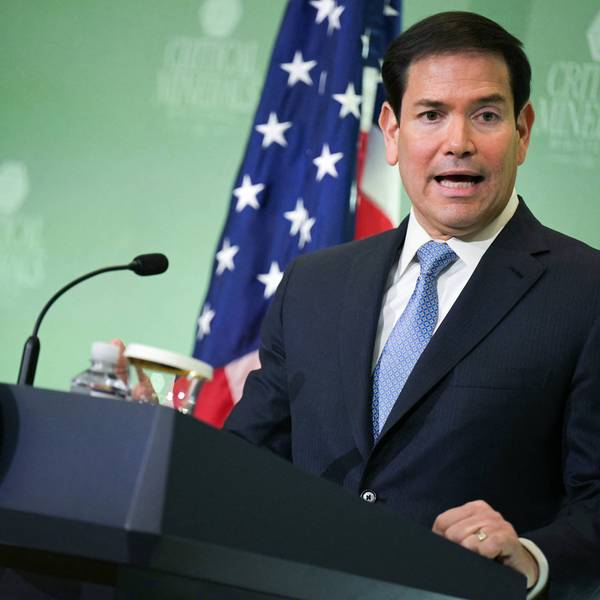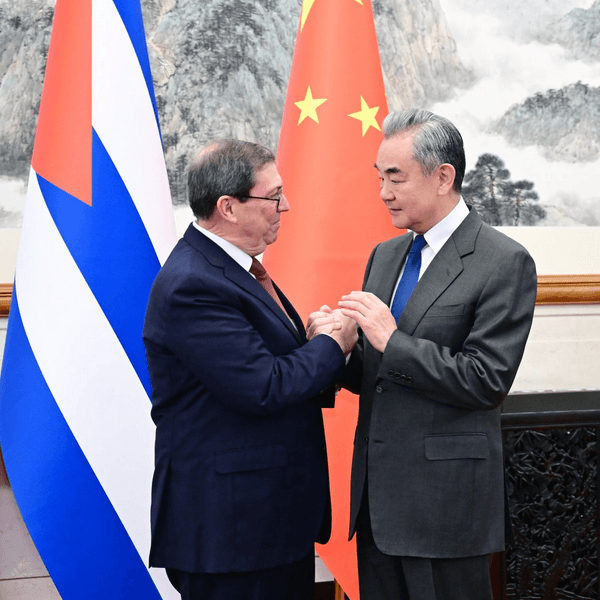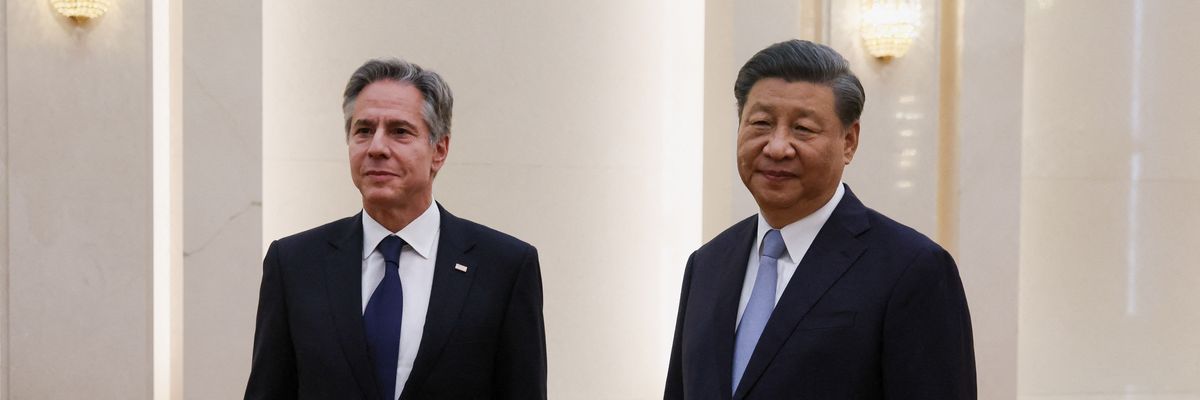U.S. Secretary of State Antony Blinken met with leading Chinese officials, including President Xi Jinping, in Beijing on Monday in what was portrayed by both sides as an effort to ease increasingly dangerous tensions between the two nuclear-armed powers.
Blinken met with Xi for roughly 35 minutes on Monday after speaking to Wang Yi, China's top foreign policy official, for several hours earlier in the day.
According to China's foreign ministry, which said the relationship between Washington and Beijing is "at the lowest point since its establishment," Wang told Blinken during the meeting that "we must take a responsible attitude toward the people, history, and the world and reverse the downward spiral of U.S.-China relations."
Wang also accused the U.S. of "hyping" the "China threat theory" and "recklessly interfering in China's internal affairs," a reference to Taiwan and other issues that were reportedly central to Blinken's talks with Chinese officials on Sunday and Monday.
"China has no room to compromise or concede" on Taiwan, Wang told Blinken, according to the Chinese foreign ministry's readout. "The United States must... respect China's sovereignty and territorial integrity and clearly oppose 'Taiwan independence.'"
The U.S. provides arms and other military support to Taiwan, and recent visits to the island by top U.S. lawmakers and officials—including former House Speaker Nancy Pelosi (D-Calif.)—have infuriated China, contributing to a further breakdown of relations between the two countries and fueling fears of a new Cold War.
In its readout of the Wang-Blinken meeting, the U.S. State Department said the two officials "discussed opportunities to explore cooperation on shared transnational challenges."
Blinken is the first U.S. secretary of state to visit Beijing since 2018, and his trip came after several high-profile incidents and disputes that only served to ratchet up concerns about a conflict between the two global powers.
One such incident occurred in February, when the U.S. military shot down a balloon that it accused China of using to surveil key military sites. China said the balloon was a civilian aircraft that drifted into U.S. airspace by mistake and condemned the Pentagon's response as "an excessive reaction that seriously violates international convention."
Republican war hawks in the U.S. reacted hysterically to the situation and accused the Biden administration of not responding with sufficient force.
GOP lawmakers offered similarly outraged responses to Blinken's trip to Beijing. U.S. Sen. Tom Cotton (R-Ark.), one of the most virulent warmongers in Congress, tweeted Friday that the Biden administration "needs to confront the Chinese, not chase them for meetings."
Despite the outcry from U.S. hawks, Xi said at the beginning of his meeting with Blinken on Monday that Washington and Beijing have "made progress" and reached "agreement on specific issues," without going into detail about the areas of agreement.
"I hope that through this visit, Mr. Secretary, you will make more positive contributions to stabilizing China-U.S. relations," Xi told Blinken.
The top U.S. diplomat, for his part, said that "the United States and China have an obligation and responsibility to manage our relationship."
"The United States is committed to doing that," Blinken added. "It's in the interest of the United States, in the interests of China, and in the interest of the world."
Chinese Foreign Minister Qin Gang accepted Blinken's invitation to meet in Washington at a "mutually convenient time," according to the Associated Press.




